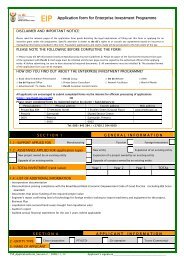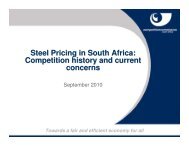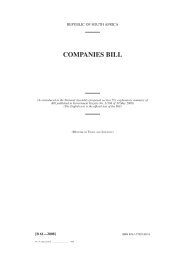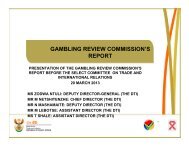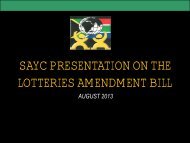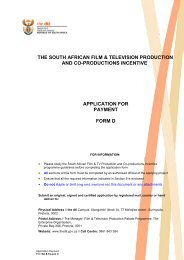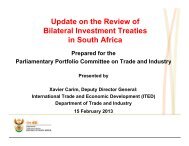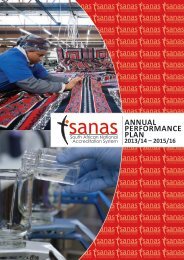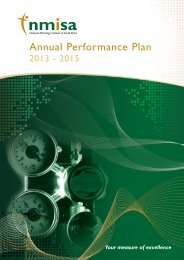Copyright Review Commission Report - ICT Law and Regulation ...
Copyright Review Commission Report - ICT Law and Regulation ...
Copyright Review Commission Report - ICT Law and Regulation ...
- No tags were found...
You also want an ePaper? Increase the reach of your titles
YUMPU automatically turns print PDFs into web optimized ePapers that Google loves.
algorithm could be used to determine the music played in a pub in the South West of London or the music played in ahairdressing salon in Hull.PPL always attempts to obtain actual usage data. If this is not possible, then PPL will use a ‘surrogate’ usage profile. Theseare created based on information from similar or associated users who have reported usage. Performers have a statutoryright to equitable remuneration from the owner of the rights in the sound recording embodying their performance underSection 182D of the Act. The obligation to pay equitable remuneration is discharged by way of payments made by PPL to theperformer members.In a report by PricewaterhouseCoopers (Music Collecting Societies. Evolution or <strong>Regulation</strong>? Assessment of RecentProposals on the Reform <strong>and</strong> <strong>Regulation</strong> of Collective Rights Management in the Music Industry (June 2005 page 11)), it isnoted that, in terms of distribution, PPL commits to distributing to the record company, featured <strong>and</strong> non-featured artists, <strong>and</strong>endeavours to do this on the basis of actual play (obtaining playlists from all possible parties). The report concludes that PPLincurs costs to ensure that collected revenues are distributed on the most accurate basis. PwC noted:We underst<strong>and</strong> that this approach is not followed Europe-wide, with many societies basing distribution on the playlists of popular radiostations, which results in a less accurate distribution method <strong>and</strong> lower distribution costs.7.5.1. FREQUENCY OF ROYALTY DISTRIBUTIONS BY THE COLLECTING SOCIETIESPRS distributes its royalties four times a year (in April, July, October <strong>and</strong> December). The distribution of royalties is done veryprofessionally by UK collecting societies. PRS’s distribution of royalties for public performances is based on the actual datacollected from key users, for example concert halls. PRS enters into agreements with market researchers to establish a baseto determine the use of music where cue sheets are not made available.7.5.1.1. Unclaimed MoneyPPL deploys various research methods to locate members who have relocated without updating their contact details,including Musicians’ Union membership, Internet research, performer representatives <strong>and</strong>, occasionally, recordcompany contacts. We also conduct information <strong>and</strong> advertising campaigns to make performers aware of the fact thatwe might have money for them. We then have an online claiming system where a performer can claim against anysound recording they performed upon (supported by evidence).7.5.1.2. Surplus FundsAny surplus funds (being payments due to performers who have not made a claim) that PPL has when distributions areclosed at the end of the statutory six-year period are distributed on a pro-rata basis across the relevant performer <strong>and</strong>record companies from that period pro-rata to their earnings for that period.- 160 -



